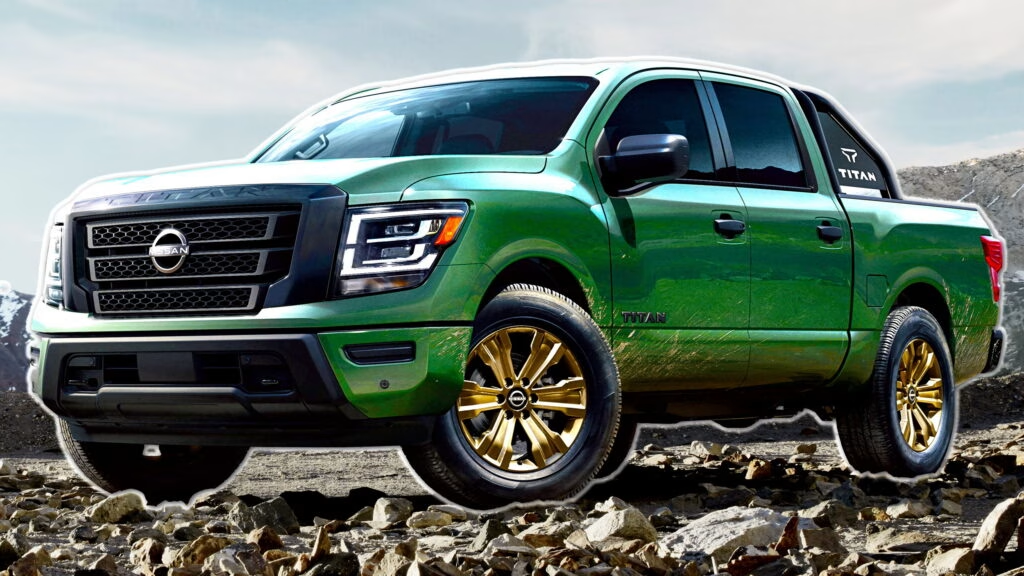Why Are Nissan and Honda Talking Again After Their Merger Fell Through?
It’s not every day you see two automotive giants circling back to the negotiation table after a high-profile merger fizzles out. Yet that’s exactly what’s happening with Nissan and Honda. Earlier this year, their $60 billion merger talks officially collapsed, leaving many industry watchers convinced the two would go their separate ways. But here’s the twist: instead of walking away, both companies are quietly exploring new ways to collaborate—especially when it comes to building trucks in the United States.
What’s driving this renewed interest? The answer is tariffs. With U.S. trade policies shifting and import tariffs putting the squeeze on foreign automakers, both Nissan and Honda are feeling the heat. Manufacturing vehicles stateside isn’t just a matter of convenience anymore—it’s a strategic necessity. And that’s where Nissan’s underused Canton, Mississippi plant enters the picture.
Could Honda Trucks Soon Be Built in Mississippi?
Honda’s interest in Nissan’s Canton facility isn’t just idle curiosity. The plant, which currently builds the Nissan Frontier, is running at just 57% capacity—a far cry from its heyday. For Nissan, that’s a lot of expensive real estate sitting idle. For Honda, it’s a golden opportunity.
According to reports from Nikkei, Honda is considering having Nissan build Honda-branded trucks at Canton. The details are still fuzzy, but the speculation is that this partnership could go beyond simply rebadging the Frontier. There’s talk of a full-size truck—something Honda has never truly had in its U.S. lineup.
Why Would Honda Want a Full-Size Truck When It Already Has the Ridgeline?
On paper, Honda already sells a truck in the U.S.—the Ridgeline. But let’s be honest, the Ridgeline is a bit of an odd duck in the pickup world. It’s a mid-size, unibody truck, which means it rides more like an SUV than a traditional, body-on-frame workhorse. That’s great for comfort and daily driving, but it’s not what most truck buyers are looking for when they want to tow a boat or haul a load of gravel.
The American full-size truck market is massive—think Ford F-150, Chevrolet Silverado, Ram 1500. These trucks are the backbone of U.S. vehicle sales, and Honda has never had a true competitor in this space. By partnering with Nissan, Honda could finally get a foothold in this lucrative segment, potentially with a truck based on Nissan’s experience (even if the Titan, Nissan’s last full-size effort, was discontinued in 2024 after years of lackluster sales).
What’s in It for Nissan?
Nissan isn’t just doing Honda a favor here. The company’s U.S. operations have been under pressure, and the Canton plant’s low utilization is a glaring issue. While the facility is slated to build two new electric crossovers in the future, those projects have recently been delayed by nearly a year. The Nissan EV is now expected in late 2028, with the Infiniti version following in early 2029. That’s a long time to wait for new product—and a lot of idle capacity in the meantime.
By building trucks for Honda, Nissan can keep the plant humming, protect jobs, and generate much-needed revenue. It’s a classic win-win, especially as both companies look to hedge against the unpredictability of global supply chains and trade policies.
Are There Other Vehicles in the Pipeline for This Partnership?
Trucks aren’t the only vehicles on the table. Previous reports suggest Honda has also been eyeing Nissan’s expertise in large SUVs. There was talk of a Honda-badged version of the Nissan Armada, which would give Honda a direct rival to the likes of the Chevrolet Tahoe, Ford Expedition, and Toyota Sequoia. While nothing has been confirmed, the idea of jointly developed large vehicles—trucks and SUVs alike—is very much in play.
How Are Industry Experts Reacting to This Potential Collaboration?
Industry analysts see this as a smart, pragmatic move. According to data from the Alliance for Automotive Innovation, U.S. pickup truck sales topped 2.5 million units in 2023, accounting for nearly 20% of all new vehicle sales. That’s a pie Honda would love a bigger slice of.
Meanwhile, manufacturing partnerships like this aren’t new. Ford and Volkswagen, for example, have collaborated on commercial vehicles and EVs. These alliances let automakers share costs, reduce risk, and respond faster to market changes. As Stephanie Brinley, principal automotive analyst at S&P Global Mobility, notes: “In today’s environment, flexibility and collaboration are more important than ever. Automakers that can adapt quickly will be the ones that thrive.”
What’s Next for Nissan and Honda—And What Should Buyers Expect?
Executives from both companies have reportedly been meeting regularly since April, but don’t expect a full-blown merger anytime soon. The focus now is on targeted, mutually beneficial projects. For buyers, this could mean more choice in the truck and SUV market—and potentially, a Honda pickup that finally ticks all the boxes for American truck fans.
The big takeaway? Reinvention in the auto industry isn’t about perfection—it’s about smarter adjustments. Start with one change this week, and you’ll likely spot the difference by month’s end.

